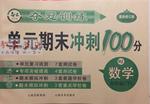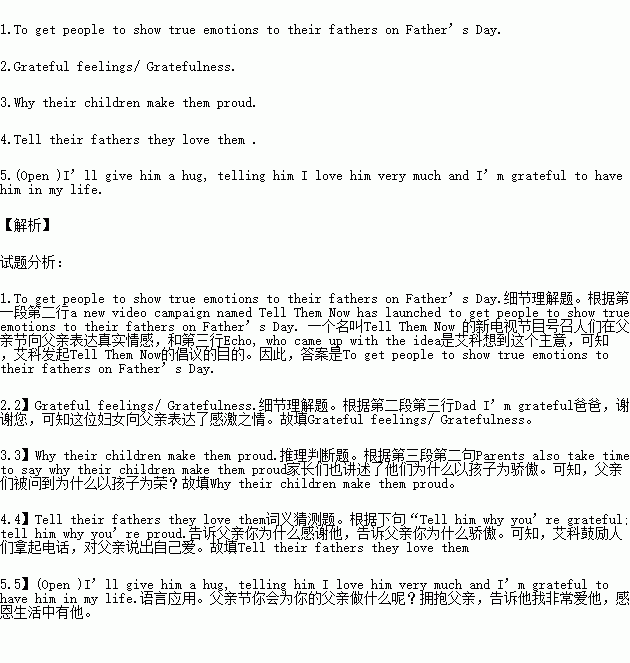题目内容
阅读表达
阅读下面的短文,请根据短文后的要求答题。
Sometimes “ love” can be the hardest word, especially when it comes to saying it to our parents. But a new video campaign named Tell Them Now has launched to get people to show true emotions to their fathers on Father’s Day. Echo, who came up with the idea, said: “ We wanted to bring fathers and their kids face to face with each other. Many people don’t feel they express their love well enough to the people close to them. ”
In total, around a dozen children and their fathers were asked to take part in Echo’s short video. During the short film, a woman gets emotional as she speaks to her elderly father, who almost dies. “Dad I’m grateful, because we don’t know how long you are going to be with us,” she says. Meanwhile, a teenage girl considers how her views about her father will change in the future once she’s fled the nest. “ At the time when I’m graduating and leaving, it’s really going to hit me,” she says before giving her father a big hug.
But it’s not just children showing the love. Parents also take time to say why their children make them proud. One father clearly finds it a difficult task when he’s put on the spot. “ I’ve always been impressed by you. You made parenting easy.” Another man states how fatherhood helped him to seek help for alcoholism. “ Thank you”, he tells his son during the public heart –to-heart scene.
Echo hopes the campaign will encourage viewers to pick up the phone, and get the “L” word out to the fathers----“Tell him why you’re grateful; tell him why you’re proud. He might just do the same”.
1.Why did Echo launch the campaign Tell Them Now ? (No more than 15 words.)
2.What feeling did the woman in the video express to her father? (No more than 3 words.)
3.What questions were the fathers asked ? (No more than 15 words.)
4.How do you understand the underlined sentence in the last paragraph? (No more than 7 words.)
5.What will you do to your father on Father’s Day ? (No more than 25 words.)
 夺冠训练单元期末冲刺100分系列答案
夺冠训练单元期末冲刺100分系列答案 新思维小冠军100分作业本系列答案
新思维小冠军100分作业本系列答案
